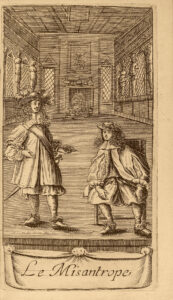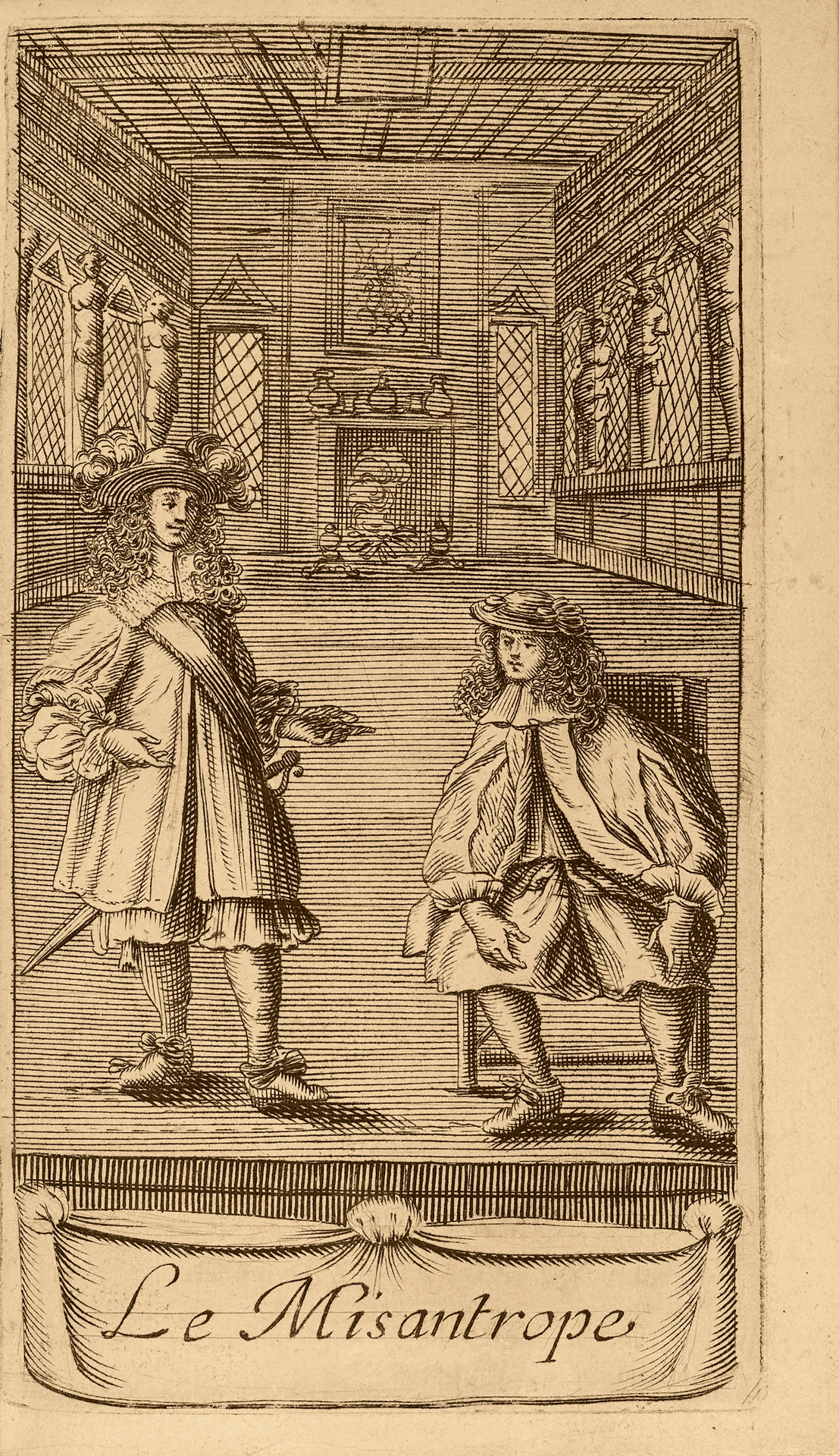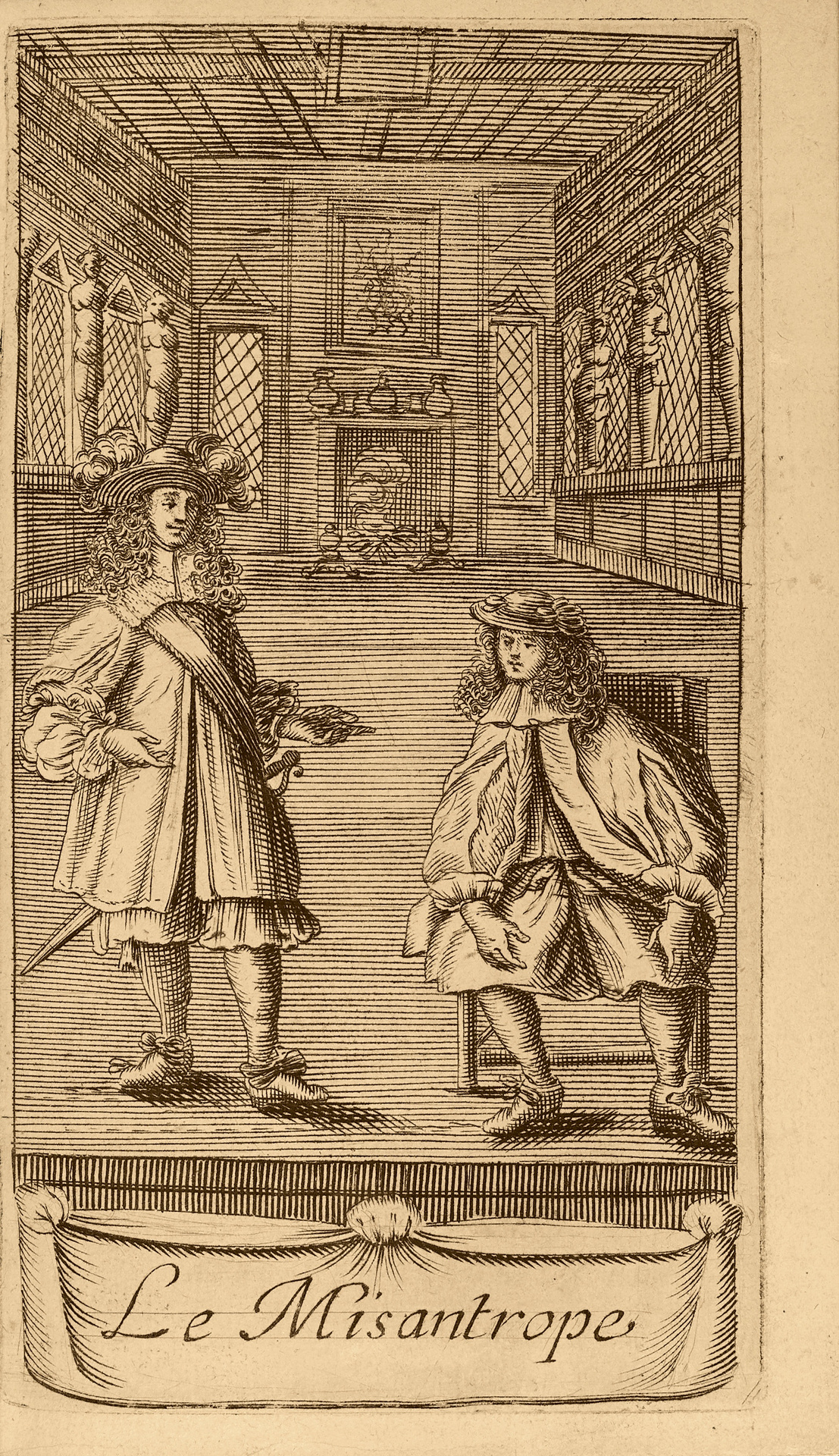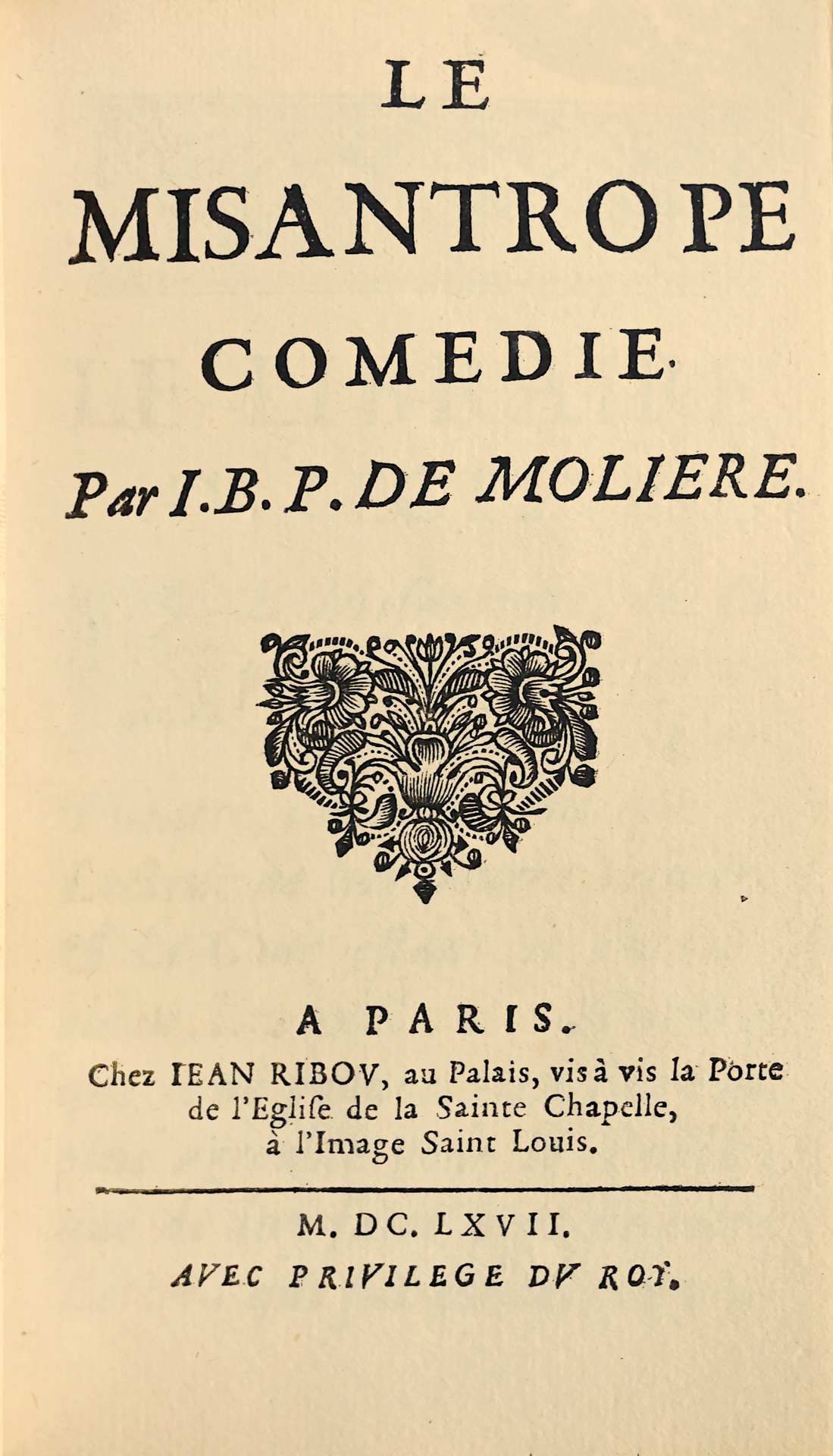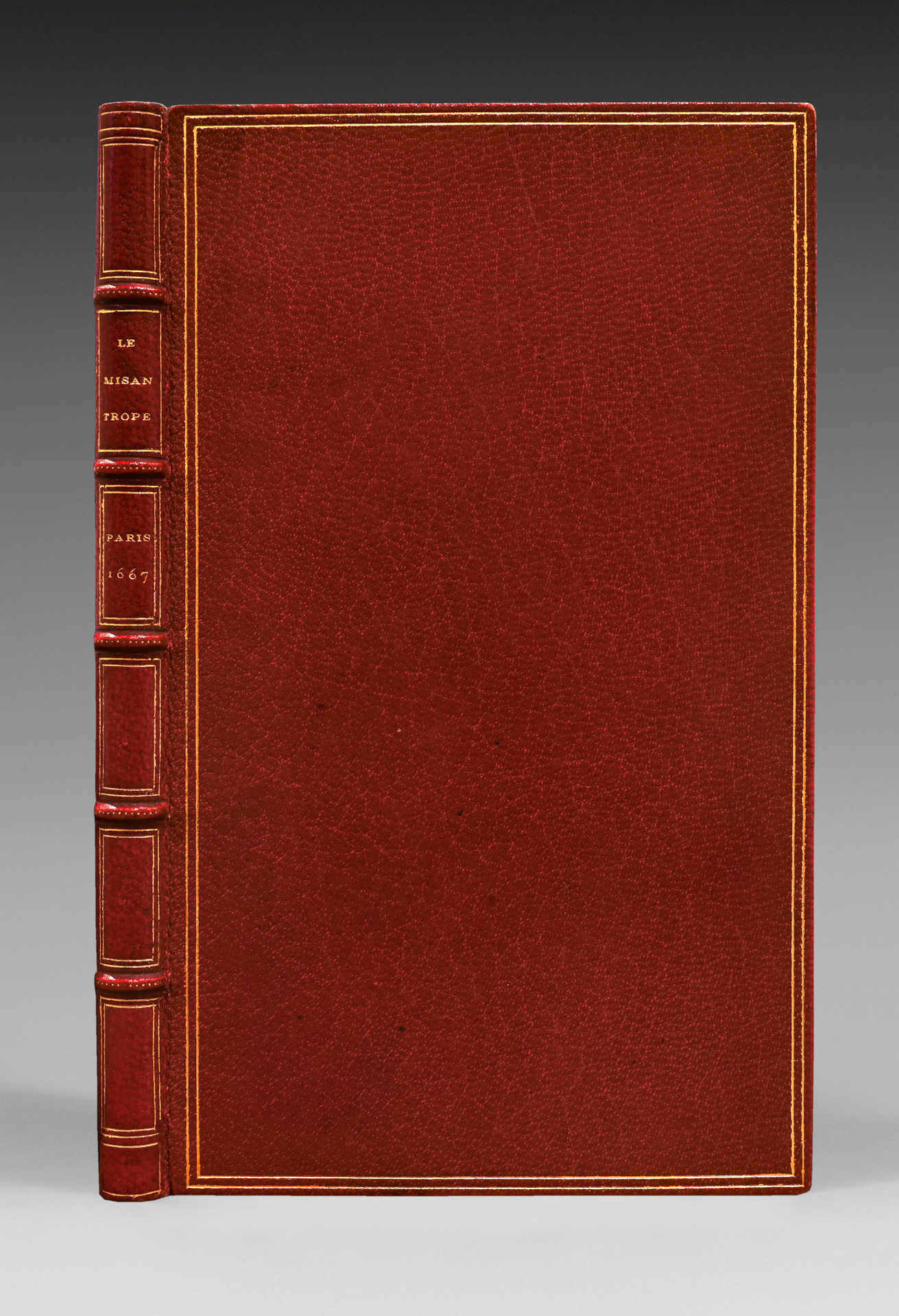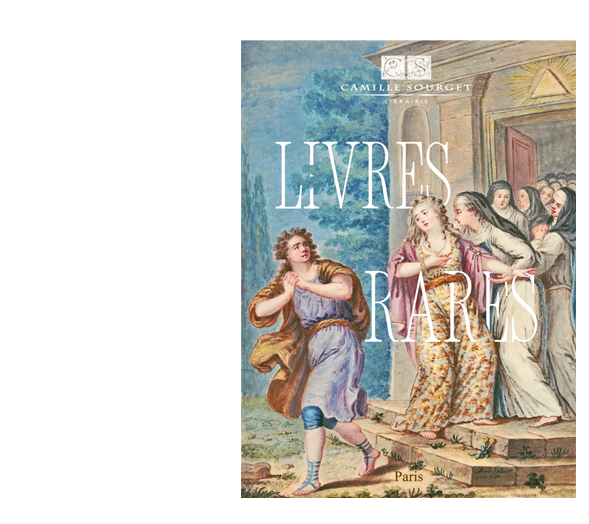Paris, Jean Ribou, 1667.
12mo [143 x 88 mm] of (12) ll. including the frontispiece and 84 pages. Red copper morocco, double gilt fillets around the covers, spine ribbed decorated with the same double gilt fillets, inner border, gilt edges. Binding signed by Brany.
Very rare precious first edition of one of Moliere’s masterpieces.
Tchemerzine, IV, 781.
“The first edition of the Misanthrope is very rare and very appreciated by bibliophiles” Guibert, Molière, p. 188.
It contains the “Avis au Libraire et Lecteur” by Molière and a “lettre écrite sur le Misanthrope” by Donneau de Visé.
“The frontispiece, interesting because it represents Molière interpreting the role of Misantrope, is often lacking from the copies” (Guibert).
The play was first performed at the Théâtre du Palais Royal on June 4, 1666. It was played from August 6, 1666 with “Le Médecin malgré lui“.
Molière played the role of Alceste and his wife the one of Célimène.
“In this pure masterpiece the psychological introspection held a considerable place. Psychology of the man in love who believes himself scorned and who mocks his own misfortune, psychology of the honest and sincere man who detects the universal lie and who suffers from it with visible indignation.”
In the Misanthrope, the passages that were emphasized and applauded were those in which Alceste made jokes against the judges, the Court and the city.
With Romanticism, the character underwent a new interpretation. Alceste, tortured by Célimène, became a kind of dark hero, victim of his passion, and his mistress the evil angel who tortures him. It is about the Misanthrope that Musset, in Une soirée perdue, will recognize this “male gaiety, so sad and so deep that, when one has just laughed, one should cry “. As Alceste became, not more sympathetic (he was also sympathetic to the spectators of the seventeenth century) but more admirable, more worthy of being taken as a model, Philinte became more suspect. Molière had made of him the typical honest man, he is now in Fabre d’Eglantine only an odious egotist and, in Georges Courteline’s La Conversion d’Alceste, only a detestable hypocrite who deceives his friend. There was thus in the character of Alceste, according to the political and literary circumstances, following the transformations of the public spirit, an evolution which is moreover not a contradiction, since all these elements exist in the play; but, whereas certain sides of the character were almost erased, other aspects, to which one was hardly sensitive in the seventeenth century, were simplified and exaggerated. This only demonstrates the extraordinary vitality of the comedy.
A very fine copy of one of Moliere’s major plays, complete with the frontispiece which is sometimes missing, bound in an elegant red copper morocco binding.
From Jean Amadou’s library.
